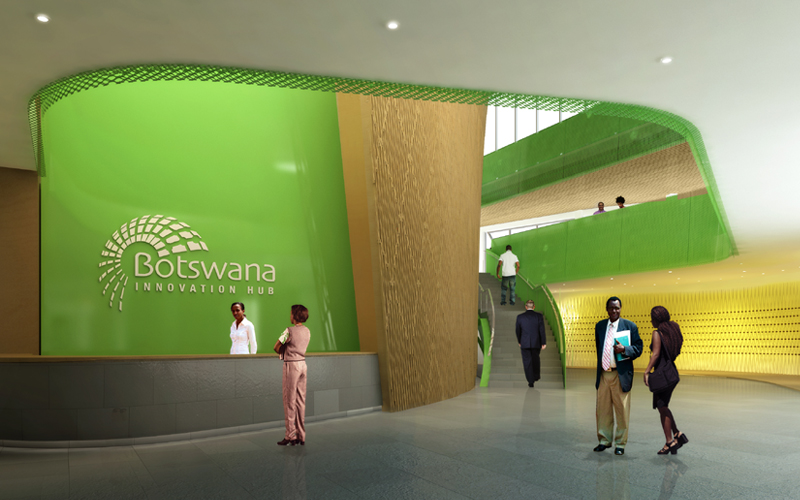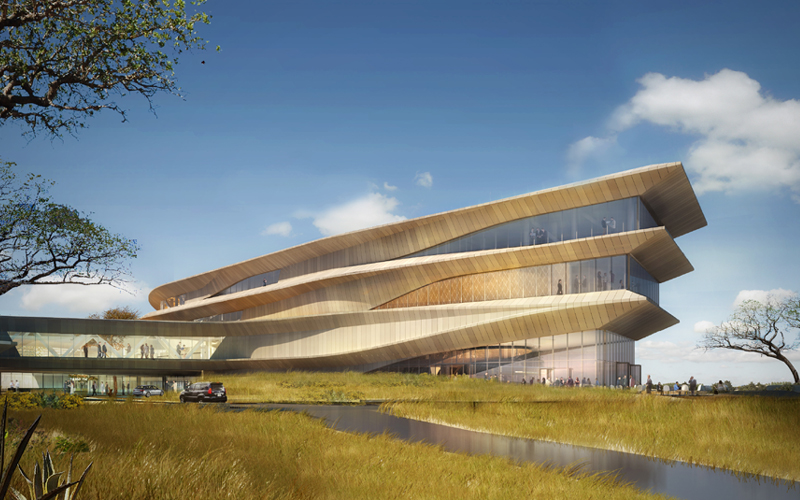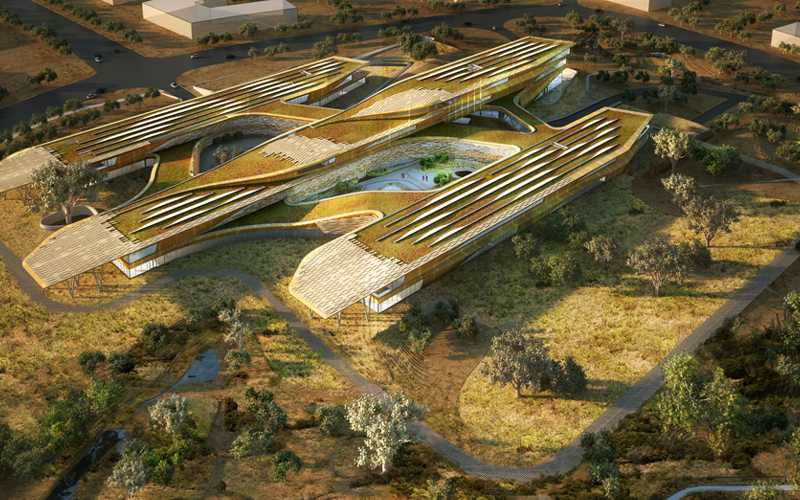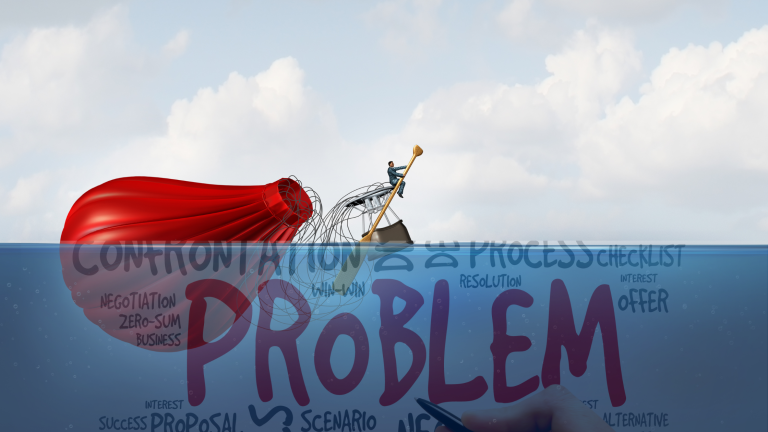Botswana is transforming its economy from a mineral to a knowledge based economy through the Botswana Digital Innovation Hub (BDIH) in Gaborone. Construction of this US$60 million project commenced in 2010 and its 75% at the witting of this article and already operational and on schedule to be completed by the end of 2023. The building design is remarkable, sitting on a 57 hectare plot. It resembles the Okavango Delta which is one of Africa’s last great natural sanctuaries, a pristine and rich wilderness home to vast concentrations of wildlife. The colour was inspired by the sand dunes of Botswana and it perfectly blends with the environment.




What is BDIH and its purpose?
BDIH is a Science and Technology Park located in Gaborone, Botswana, and is comprised of some of the world’s leading technology-driven and knowledge-based companies. The hub was established by the Botswana government to facilitate the development of innovative solutions and technologies in Botswana working together with the academia and other research institutes groups in Botswana. The park serves as a platform to bring together all innovators in the ecosystem to collaborate and work together in developing new products and services, starting with Botswana and extending to the whole of Africa and the global community.
The purpose of Botswana Digital & Innovation Hub (BDIH) redefine the future of innovation by providing an ideal location for technology-driven and knowledge-intensive businesses to establish themselves, develop and compete in the regional and global markets.
Benefits
- Benefits of being situated at the BDIH include the opportunity to develop and grow competitive technology-driven and knowledge-based businesses. BDIH supports start-ups and existing local companies as well as attracts international companies and institutions.
- Additionally BDIH aims to contribute to the country’s economic development and competitiveness, create new scientific, technological, and indigenous knowledge-based business opportunities, foster entrepreneurship and technology transfer to develop start-up companies and add value to existing companies, and attract innovative companies and institutions to Botswana.
- BDIH provides a range of support services to help businesses grow and succeed. These services include business incubation and acceleration, mentorship and coaching, access to funding and investment opportunities, networking and collaboration opportunities, training and skills development programs, and access to state-of-the-art facilities and infrastructure.
- Innovators from all parts of Africa are welcome to invest within the park. There are many plots in the park and also an industrial site. BDIH will facilitate your coming, including Visas and company registration if need be.
- The BDIH location is a special economic zone, meaning all companies that are setup there have access to tax incentives and labor dispensation. It costs only USD$35 to register a company in Botswana at the time of this article’s writing.
The hub aims to support the development of five key sectors, namely:
- Information and Communication technologies and ICT enabled services
- Mining technologies
- Biotechnology
- Cleantech
- Indigenous knowledge
If you are in the technology and innovation space, you are welcome at the BDIH community to develop solutions for Africa. To become a member, click here. Botswana like many African countries has a youthful population and through such initiatives this can be turned into an opportunity not only for market but also retooling, scaling and digitization. Botswana has been dependent on its mineral deposits namely diamonds for too long, with over 50%of its GDP coming from mineral resources.
Can Innovation and technology change the face of Africa?

Innovation and technology have the potential to change the face of Africa. The continent has been making steady progress in its digital maturity and in improving the key drivers of technological advancement and innovation. Internet access and mobile phone usage have grown dramatically, as has science, technology, engineering, and mathematics (STEM) education . African countries need to invest more in research and development (R&D) and international partners should offer investment support to create home-grown digital solutions. The ongoing digital revolution is transforming economies and driving innovation across all economic sectors.
However, Africa still lags in most important measures of innovation capacity. To fully realize its potential, African governments need to adopt a holistic approach that fits their own circumstances and needs. Each should articulate national innovation strategies in specific sectors, enact policies that will stimulate innovation activity, and strengthen the enablers of innovation.
Remember, the future belongs to those who embrace change and adapt to new possibilities. Let’s transform our nations together!




[…] organizations, and the individuals themselves. Take a look at the Botswana is doing through the Botswana Digital Innovation Hub […]